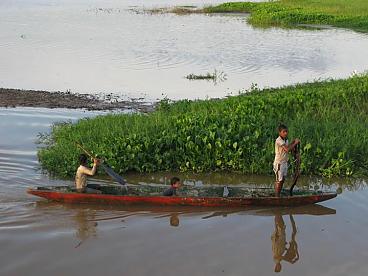Smaling: sustainability and employment must be priorities during climate summit
Smaling: sustainability and employment must be priorities during climate summit

Next week, the Climate Summit will take place in Paris. A hundred and eighty countries will discuss measures to mitigate the rise in global temperatures, the aim being to ensure that storms, drought and flood don’t begin to dominate our lives. In order to achieve that, emissions of greenhouse gases, such as CO2, must be greatly reduced. The summit is an excellent opportunity to make progress towards moving from a fossil-fuel based to a sustainable society. The sooner, the better.
By Eric Smaling
 That won’t be easy, because industry, transport, agriculture, and ourselves in our own homes - all of these things emit CO2. For the SP it’s crucial that an ‘us’ against ‘them’ atmosphere doesn’t arise in Paris. The risk of that happening is great, because emerging and developing countries believe that they too have the right to the level of prosperity which we have enjoyed for the past half-century. The SP also wants to ensure that the change from fossil fuels to sustainable energy is coupled with a sound understanding of its effects on people’s incomes, on employment and in terms of the need for new forms of training, education and retraining. Only together, with the people on board, is such a huge but necessary revolution, towards a sustainable society possible.
That won’t be easy, because industry, transport, agriculture, and ourselves in our own homes - all of these things emit CO2. For the SP it’s crucial that an ‘us’ against ‘them’ atmosphere doesn’t arise in Paris. The risk of that happening is great, because emerging and developing countries believe that they too have the right to the level of prosperity which we have enjoyed for the past half-century. The SP also wants to ensure that the change from fossil fuels to sustainable energy is coupled with a sound understanding of its effects on people’s incomes, on employment and in terms of the need for new forms of training, education and retraining. Only together, with the people on board, is such a huge but necessary revolution, towards a sustainable society possible.
There has long been heated debate around climate change. Is the rise in temperatures really down to human activities? How serious is it exactly? Are the models accurate? As things stand we can confirm that global temperatures are rising faster than is normal, and that this has to do with a concentration of CO2 in the atmosphere that has also risen enormously in the last fifty to a hundred years. More CO2 in the atmosphere means that more warmth is retained on the earth. If the icecaps melt, this will become even worse, because sunlight won’t be reflected back. Moreover we are now using up in a few generations stocks of oil, gas and coal formed millions of years ago.
We must now work to counter pollution and its causes. Coal-fired power stations – major polluters – must be gradually closed down. Commuters must, within a foreseeable amount of time, drive electric cars as the first generation of these vehicles comes on to the market. Housing and other buildings must be insulated, and in the short term. Greening the taxation system would encourage major industries to rapidly reduce emissions from major industries. The ley words are: less, more efficient, more sustainable.
Technology and people must receive equal attention, as for example filling peat beds with massive wind turbines as in Drents is not the way forward. Finally, we need to use both the carrot and the stick, a combination of legislation and taxation or investment, and offering to both the public and to industry the chance to tackle the problem for themselves. The summit in Paris is an excellent opportunity to at last make progress.
- See also:
- World
